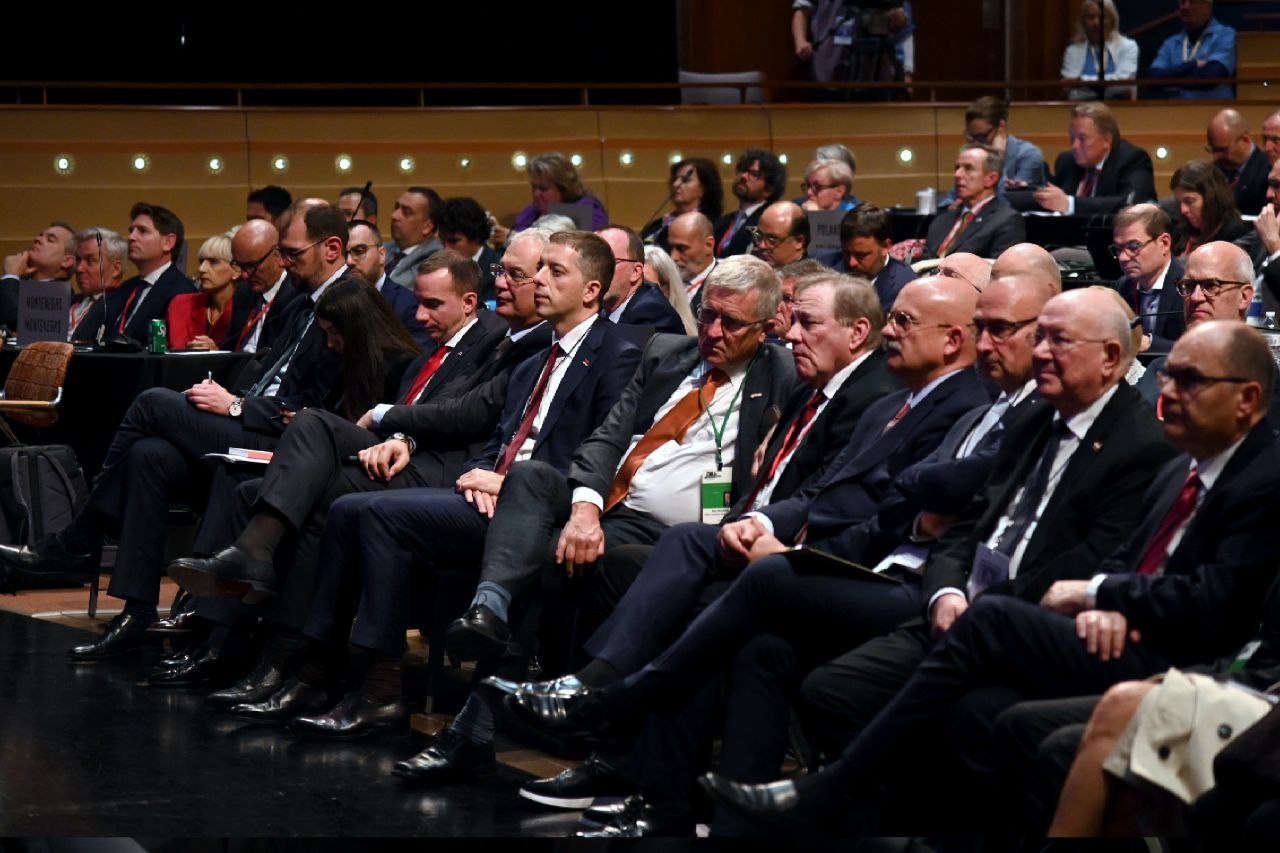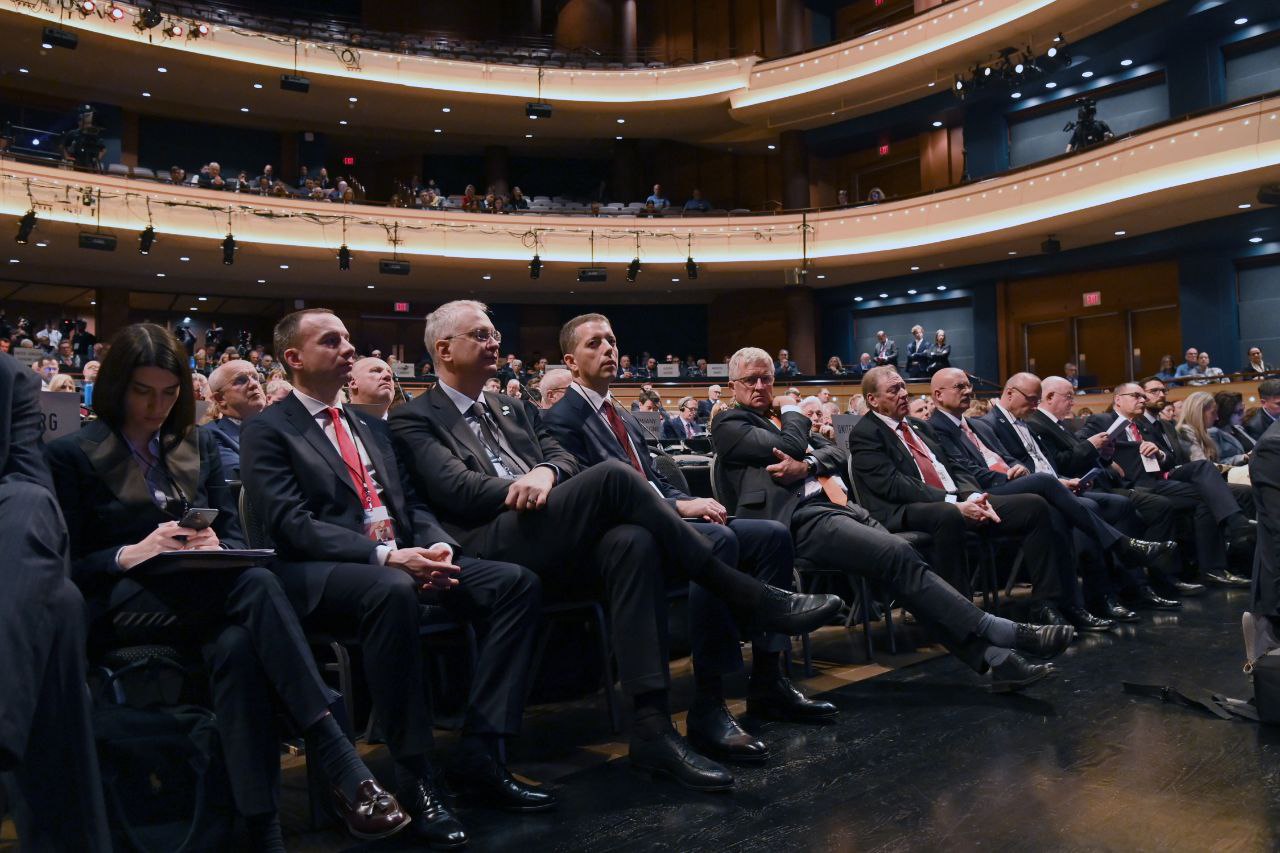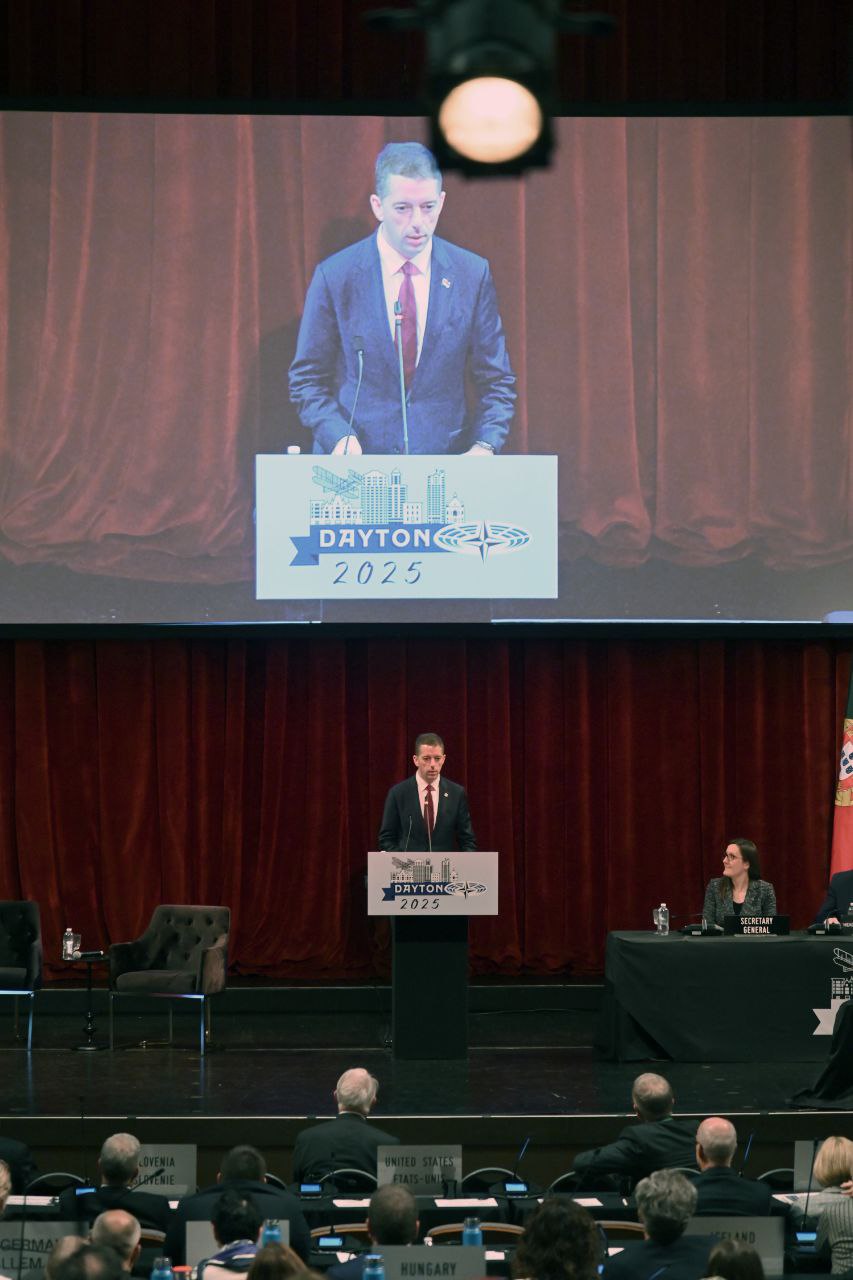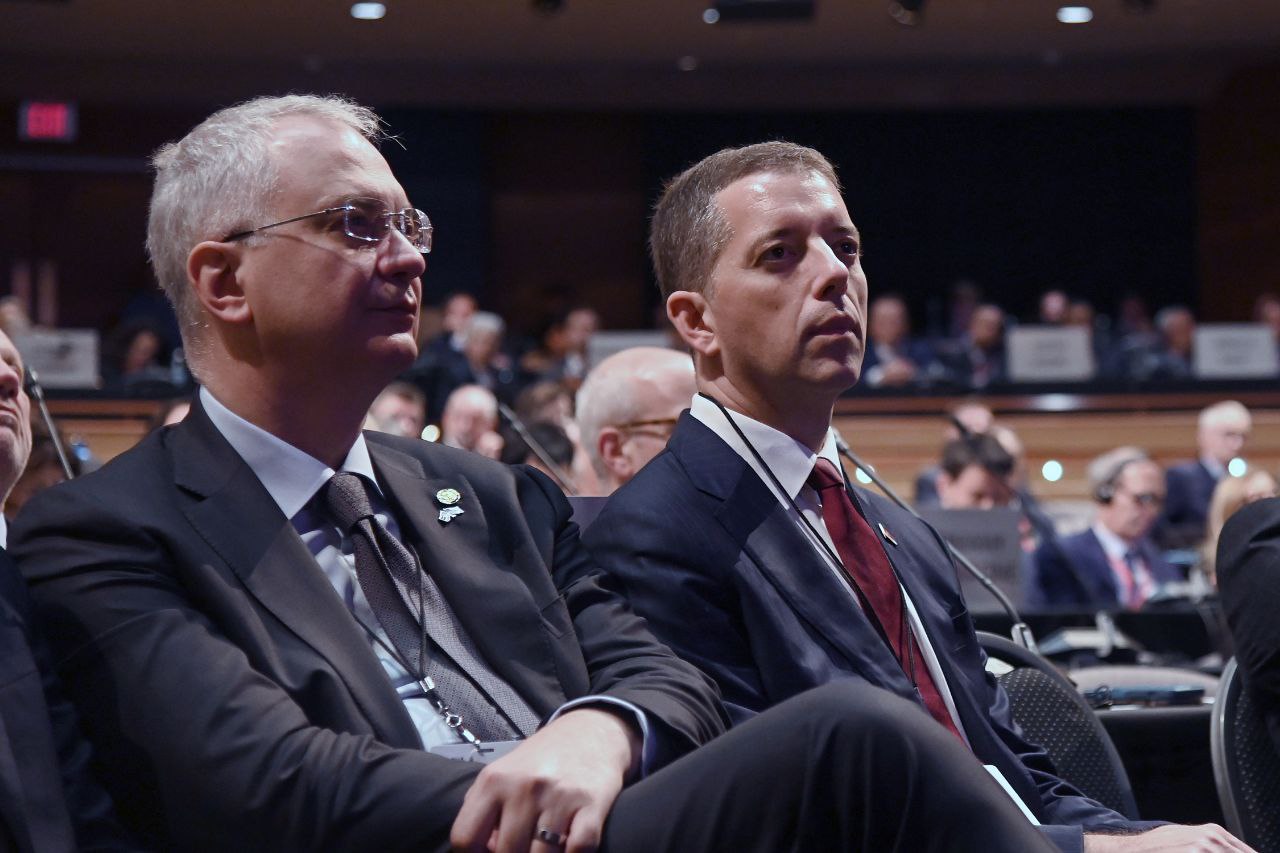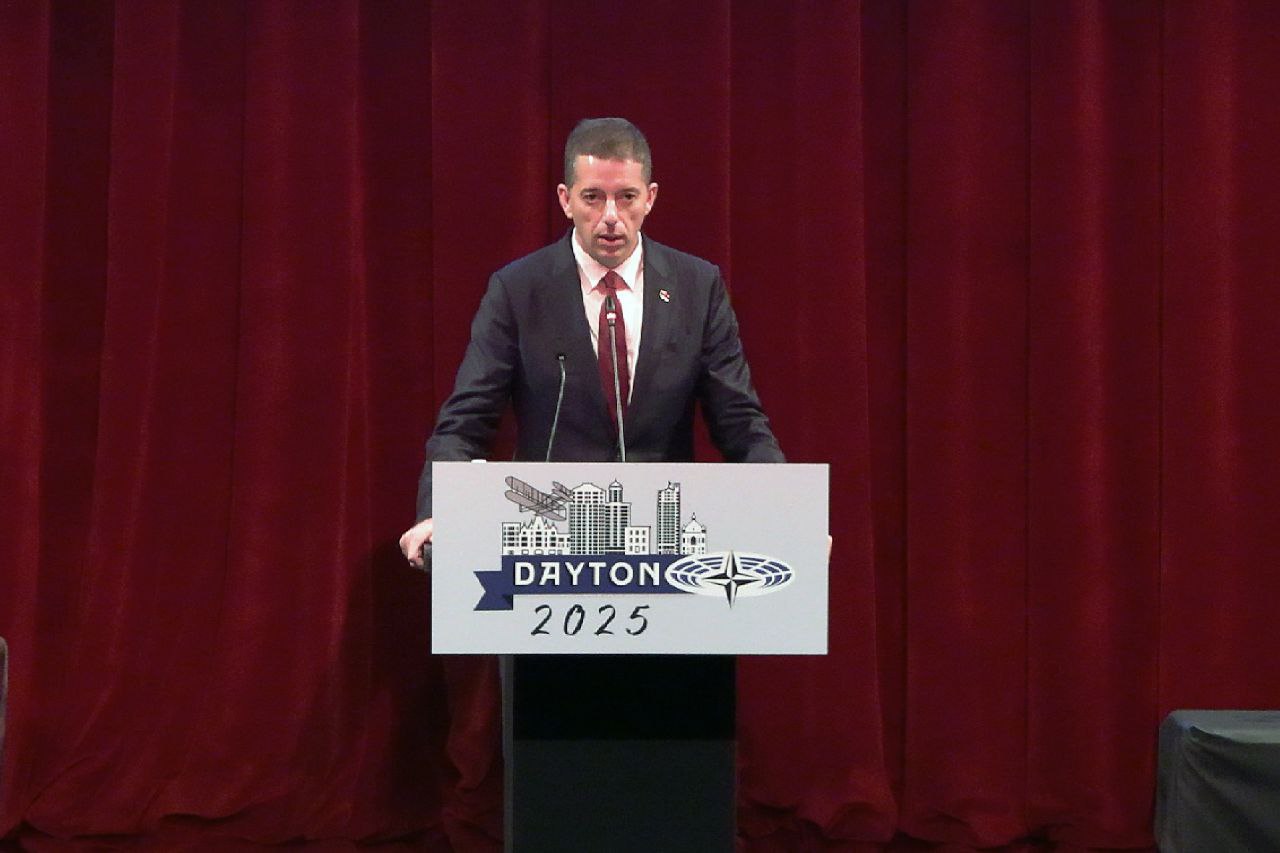Đurić: Serbia believes in dialogue among equals in Bosnia and Herzegovina
Speaking at the opening ceremony of the NATO Parliamentary Assembly session held in Dayton, Ohio, Minister Đurić warned that any attempt at centralization in Bosnia and Herzegovina—particularly if conducted without the consent of the entities—is not only legally questionable but also potentially destabilizing.
“There are those in Europe who advocate for a unitary Bosnia, often under the guise of creating a 'more functional state.' To be frank: this is a disaster waiting to happen. Bosnia and Herzegovina is not a monoethnic state. The only sustainable path forward is one that respects its unique structure and the autonomy of its constituent peoples. Anything else risks unraveling the peace that Dayton brought,” Đurić said.
He emphasized that Serbia will always be a dependable and committed partner in the preservation of peace, adamantly opposing both separatism and forced centralization.
The situation in Bosnia and Herzegovina, he cautioned, will remain complex as long as it is viewed in black-and-white terms, because there is no single hero or sole culprit—there are people, memories, pain, and a need for mutual respect.
“If we are truly committed to moving toward the future, it is our responsibility not to deepen divisions or revive past conflicts, but to find a way forward—toward mutual understanding, lasting peace, and shared economic development that benefits all communities,” Đurić said.
According to him, for the Republic of Serbia, the Dayton Agreement remains a living and binding legal framework—a treaty that guarantees the constitutional order and equality of the three constituent peoples and two entities in Bosnia and Herzegovina. Serbia continues to stand firmly behind it, convinced that lasting stability can only be built on the foundations of a shared future.
Serbia, he added, fully supports the territorial integrity of Bosnia and Herzegovina, while also advocating for the preservation of the constitutional competences of the Republic of Srpska, as guaranteed by the Dayton Agreement.
Minister Đurić noted with concern the ongoing attempts to revise the Dayton Agreement—not through democratic consensus or inclusive dialogue, but through imposed decisions and efforts at forced centralization, which undermine both the constitutional structure of Bosnia and Herzegovina and the very letter of the original agreement.
“We are here today not only to mark the anniversary of the Dayton Agreement but to reaffirm our commitment to its principles. If we truly seek prosperity, we must abandon the illusion that it can be achieved in isolation or through the revision of the balance carefully established by Dayton. Serbia remains resolute on this path. We are committed to a future in which the Balkans is not a zone of tension, but a region of opportunity—built on compromise, mutual respect, and genuine commitment to shared progress,” the Minister said.
He explained that Serbia today is a rapidly developing country striving to become a full member of the European Union and is dedicated to regional cooperation, as a new generation of youth has grown up in the Balkans—one that no longer sees borders and checkpoints as the sole expressions of sovereignty and territorial integrity.

